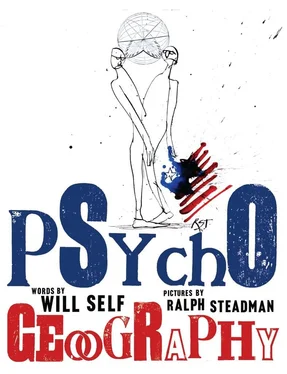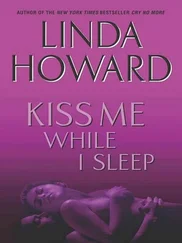Will Self
Psychogeography
For Kurt Vonnegut, Jr., writer, wit and sage (1916–2007)
‘Honor escapes he who runs after it’
Jewish proverb, from my great-grandfather’s notebook

I resolved to walk to New York; in the interests of writing about the experience, certainly, yet also with objectives at once more pedestrian and more ambitious.
This was, perhaps, to be the defining journey so far as my particular brand of psychogeography is concerned. Although we psychogeographers are all disciples of Guy Debord and those rollicking Situationists who tottered, soused, across the stage set of 1960s Paris, thereby hoping to tear down the scenery of the Society of the Spectacle with their devilish dérive , there are still profound differences between us. While we all want to unpick this conundrum, the manner in which the contemporary world warps the relationship between psyche and place, the ways in which we go about the task, are various.
Some see psychogeography as concerned with the personality of place itself. Thus, in his novels and biographies, Peter Ackroyd practises a ‘phrenology’ of London. He feels up the bumps of the city and so defines its character and proclivities. To read Ackroyd is to become aware that while the physical and political structure of London may have mutated down the ages, as torrents of men and women coursed through its streets, yet their individuality is as nothing, set beside the city’s own enduring personification.
Others, such as my friend Nick Papadimitriou, pursue what he prefers to term ‘deep topography’: minutely detailed, multi-level examinations of select locales that impact upon the writer’s own microscopic inner-eye. He manufactures slides, in which are pinioned ecology, history, poetry and sociology. Nick points out that most of the psychogeographic fraternity (and, dispiritingly, we are a fraternity: middle-aged men in Gore-Tex, armed with notebooks and cameras, stamping our boots on suburban station platforms, politely requesting the operators of tea kiosks in mossy parks to fill our thermoses, querying the destinations of rural buses. Our prostates swell as we crunch over broken glass, behind the defunct brewery on the outskirts of town) are really only local historians with an attitude problem. Indeed, real, professional local historians view us as insufferably bogus and travelling — if anywhere at all — right up ourselves.
On the night before I set off to walk to New York, my wife looked quizzically at me, as one might regard someone who, whether through disorganisation or ineptitude, had ended up making a journey both senseless and tedious, and, putting her head charmingly on one side, said: ‘Remind me again, why is it that you’re going to New York?’
Doubtless there was an element of affectionate ribbing in this: she knows that I know that she knows that I know, that while she views my psychogeographic peregrinations as marching along the poorly marked, crinkle-cut frontier between boredom and pretension, she nonetheless not only encourages, but even enjoins them, because of their beneficial impact on my mental health, and, by extension, that of our family.
A digression: do I believe that men are corralled in this field due to certain natural and/or nurtured characteristics, that lead us to believe we have — or actually do inculcate us with — superior visual-spatial skills to women, and an inordinate fondness for all aspects of orientation, its pursuit, minutiae and — worst of all — accessories? Absolutely. And so, while not altogether abandoning the fantasy of encountering a psychogeographic muse who will make these jaunts still more pleasurable, poignant and emotionally revelatory than they already are, in my continent heart I understand that I am fated to wander alone, or at best with one other, occasional. . male companion.
I will answer my wife’s question for you — but not yet. Mine are not writerly journeys in the accepted sense: Rousseau philosophising à pied , Goethe rattling into Switzerland in a coach, Cobbett on his clopping gee-gee, assorted Borrows and Stevensons plodding with their donkeys, Greene rocking on a train, Thesiger with a camel up his arse. Even in the modern era there remain writers firmly convinced that there are still discoverable terrains — human, physical, cultural — and ways of traversing them, so as to be able to convey their ‘novelty’ in words. I am not of their number.
I find it uncanny to be in a world in which, as I write this very sentence, I will travel thirty or forty miles through the upper atmosphere, while — in search of the mot juste — glancing either over the shoulder of the kidult watching The Ant Bully or at the photographic scenes of Oxford colleges — in all their bluey verdancy — that adorn the bulkheads of this Boeing 757 aircraft, on its flight from JFK to Heathrow.
I can only speak for myself: a mammoth depression tramples me, and my mind reaches vanishing point as it negligently orbits the planet; to think, at all, of taking a package tour to visit the Ituri pygmies of the Congolese rainforest, or fostering a globalised economy that will, in the fullness of its exaltation, make it possible for them to visit me.
No. I resolved to walk to New York because I wanted to explore. Here was a true Empty Quarter, and, as with other long walks I have taken out of my native city, I had the strong hunch that this would be the first time in the post-industrial era that anyone had ventured across it. True, I had walked from central London to Heathrow before, and I had heard of one adventurer who had walked from JFK to Manhattan, but I was certain I would be the first person to go the whole way, with only the mute, incurious interlude of a club class seat to interfere with the steady, two-mile-an-hour, metronomic rhythm of my legs, parting and marrying, parting and marrying.
This is one part of the answer to my wife’s question; the second is to observe that I had reasons to go to New York: relatives to see, a writers’ residency to launch, an interview in connection with the US publication of one of my novels. Whatever my wife thought (or thought I didn’t think).
This was what distinguishes my psychogeography from that of the others. This was to be no randomised transit, intended to outfox prescribed folkways. (You read of such things, on the web, natch: proceeding across Toronto by throwing a dice, journeying to unlovely parts of Florence with carefully contrived non-deliberation.) And nor was it to be like the treks undertaken by Iain Sinclair, that Celtic Englishman whose circumnavigation of the M25 (London’s orbital motorway), or travail along the A13 to Southend, were dogged, shamanic attempts to storm these concrete bastions — with their bark-chip, shrubbery-planted revetments — laying siege with the trebuchet of his prose-poetry; and catapulting great hunks of stony verbiage into them, so that the capitalists abandoned their cars and ran, screaming, tongues cleaved to the roofs of their mouths.
No. I resolved to walk to New York because I had business there, to explore; and, also, because in so doing, I hoped to suture up one of the wounds in my own, divided psyche: to sew together my American and my English flesh, my mother’s and my father’s body bags, sundered by marriage, rived by death. And maybe even, at a more grandiose level (exhibiting what might be termed a Terroristic Personality Disorder), to expiate the sense of weird culpability that had dogged me, ever since 11 September 2001, when, returning from lunch with our then one-month-old youngest son, my wife, out of pure, journalistic reflex, snapped on the rolling news channel.
Читать дальше













